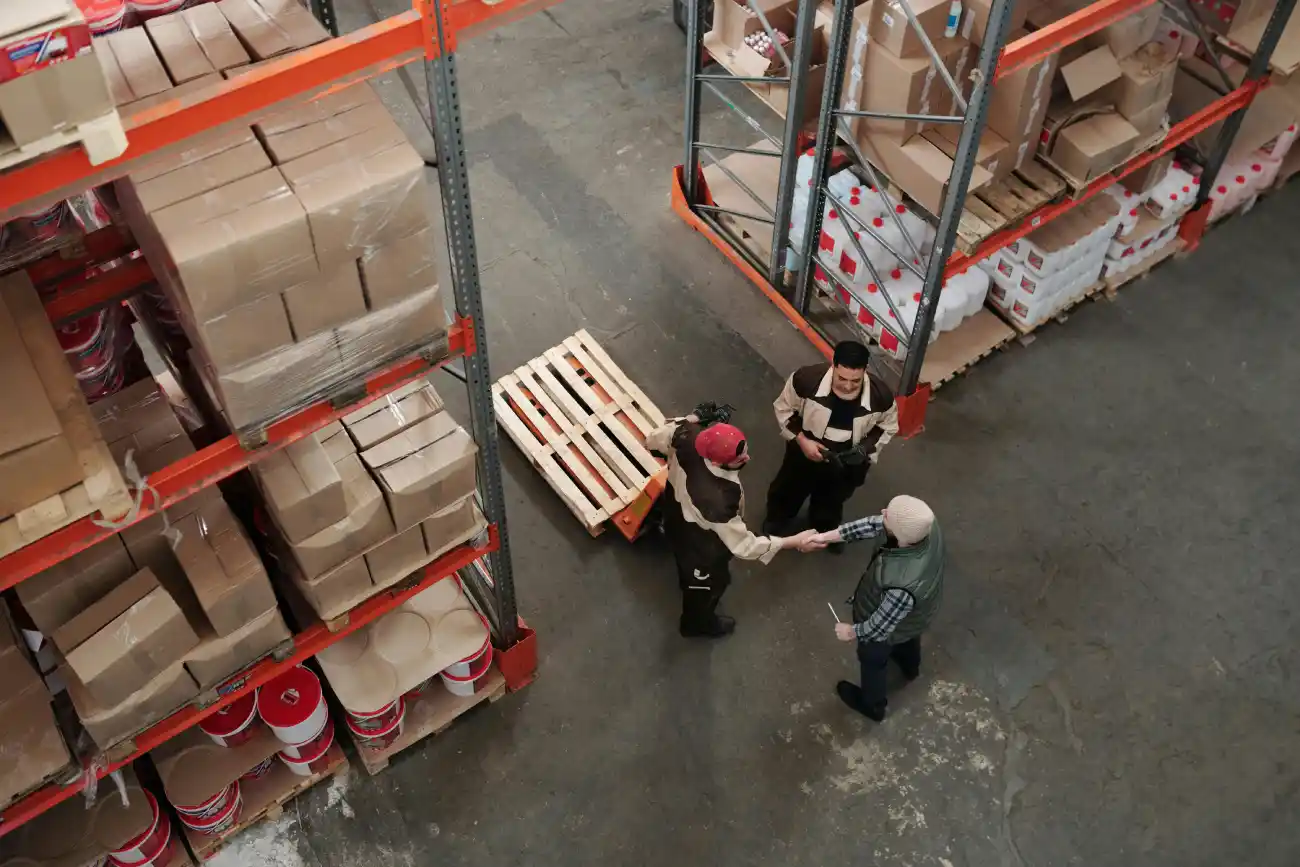ZD Guides | Logistics & Supply Chain Recruitment

Logistics recruitment has changed. In this ZD Guide, we’ll explore how, ask what that means for your supply chain operation, and consider strategies for recruiting more successfully.
How is the logistics and supply chain recruitment landscape evolving?
Pre-pandemic, pre-cost of living crisis and pre-global turmoil, the supply industry was already undergoing huge change. Then the challenges of the past few years upped the ante, requiring the logistics sector to move quicker and change faster, and requiring logistics recruitment to shift with it in a range of ways.
Sourcing and shipping
Products that used to come from one corner of the world now don’t or can’t. Whether it’s conflict where the product is sourced, or conflict centred on shipping lanes, retailers have had to shift buying strategies, and that has increased the talent acquisition premium for people with the international know-how and expertise to navigate such complexities.
Automation
There are huge efficiency gains for warehouses that adopt automation, from using every last inch of vertical space, to increasing production to freeing human workers to focus on higher-value tasks.
But if your warehouse has only dipped its toe in the automation water to date, logistics recruitment that focuses on bringing in these key skills can help you automate more successfully and avoid the pitfalls.
Driven by data
Essential for automation but also for general efficiency, every organisation’s supply chain needs data to become more efficient. Yet having the data is only the first step; just as vital is the ability to analyse it, apply it and use it to drive improvements. That’s why data (and, increasingly, AI) savviness has become a growing ‘must have’ in supply chain recruitment.
Ethics and sustainability
Where you source products from, how you package them and how you ship them have become major considerations for the logistics industry, with knock-on effects for supply chain recruitment.
Whether it’s the fuel in your trucks, the packaging around your products or recycling and waste reduction, there are clear impacts for logistics recruitment as sustainability, ethics and values become as important to hiring success as traditional metrics.

Why is effective recruitment critical for optimising logistics and supply chain operations?
To keep pace with change
There aren’t many areas of industry changing quite so rapidly as warehousing and supply chain. Organisations should (and are) training and developing their teams to respond to this, but when change is so rapid it makes sense to bring in experience that can help lead from the front and mentor and train those within the business.
To bring in fresh ideas
Supply chain is all about finding new ways to streamline processes and drive efficiency. You’ll want to drive innovation from within, but there’s a risk in only looking inward for fresh ideas. That’s why logistics recruitment is important, because it helps inject fresh thinking and new ways to improve productivity and efficiency.
To build stronger supplier relationships
Not everyone you hire through your supply chain recruitment strategy will bring valuable industry contacts and connections, but the more senior appointments almost certainly will. The connections of your latest recruits can bring you business. But they can also open doors in terms of new products, new technologies and new ways of working.
What challenges do companies face when recruiting for logistics and supply chain positions?
We’ve already explored some of the ways in which the supply chain recruitment landscape is changing, but if you were to compare the various challenges each presents to talent acquisition, most recruiters would say these are the biggest:
Tech vs people
Talent acquisition is hard for every industry. It’s harder still when you’re part of a sector that is widely seen as being at the forefront of replacing human workers with robots and AI. It’s not hard to understand why top talent may wish to switch industries when they fear their job won’t be around this time next week/month/year.
For the logistics sector, the solution has to lie in painting a picture of what the landscape looks like once every business has been automated.
People will remain vital to supply chains. It’s just that the tasks they perform will be more demanding and have higher value. In terms of hiring, then, the opportunity lies in showcasing growing challenges, development and job satisfaction for those people who possess the necessary skills.
Worker flexibility
Whenever we survey workers, flexibility always comes near the top of preferred benefits. You don’t need us to tell you that, for the supply chain industry, that hasn’t traditionally been easy to achieve.
Sure, you could offer a range of shift patterns, but almost every pattern required almost every worker to be present. Remote working wasn’t unknown in the logistics sector, but it wasn’t exactly the default either.
Does that matter? We’d suggest it does if you want to retain top talent, especially if workers can switch to other employers or other industries where they are more likely to find the freedom to work remotely.
Fortunately, the shifting role of tech in logistics is increasing the potential for remote working too. As long as fewer people are needed on the floor of the warehouse to programme and monitor warehouse management systems, quality check or deliver tech support, more people can operate hybrid work patterns. And that can only benefit talent acquisition and retention.
What are the key strategies for successful logistics and supply chain recruitment?
We’ll skip the importance of getting the job ad and interview right, of harnessing social media and of building your employer brand. That’s not because they’re not vital parts of talent acquisition — they are — it’s just that they’re vital parts of all hiring, not just supply chain recruitment.
For talent acquisition in logistics, you’ll also need to factor the following in:
Core skills
Role dependent of course, but inventory management and forecasting, transportation planning, experience with warehouse management systems and the compliance issues that surround all the above will inevitably play a major role in lots of logistics hiring. As we explored earlier, data and AI skills may be increasingly valuable too.
Showcase success
We spoke earlier about the extra hiring difficulty supply chain businesses may face as a result of automation. So challenge any negative perceptions by showing potential applicants what’s possible in your organisation. Show them the people who’ve built their skills and developed their careers. And show them the pathways that will be open to them.
Foster candidate networks
One of the big issues for any talent acquisition campaign is that lots of competitors will be trying to acquire talent at the same time. That means you’ll make life harder for yourself if you only recruit from the current jobseekers market.
To get ahead of the competition, use supply chain conferences to develop your network, attend local job fairs, or consider internships and apprenticeships.
Build recruiter partnerships
You’d expect us to add this one, given that we’re a recruitment company, but there is genuine value in working with a recruitment partner.
Professional recruiters already have the networks and processes set up, so you don’t need to develop your own. With the right partner, you retain complete control over the relationship, so you can dial up the partner’s involvement when you have a major recruitment exercise planned and dial it back down again when your in-house team is able to manage the daily recruitment churn.
Supply chain recruitment with Zachary Daniels
We’ve been recruiting for every part of the retail sector for more than a decade – and that includes supply chain and logistics. For help with your logistics hiring, talk to us now.
< Back to list


